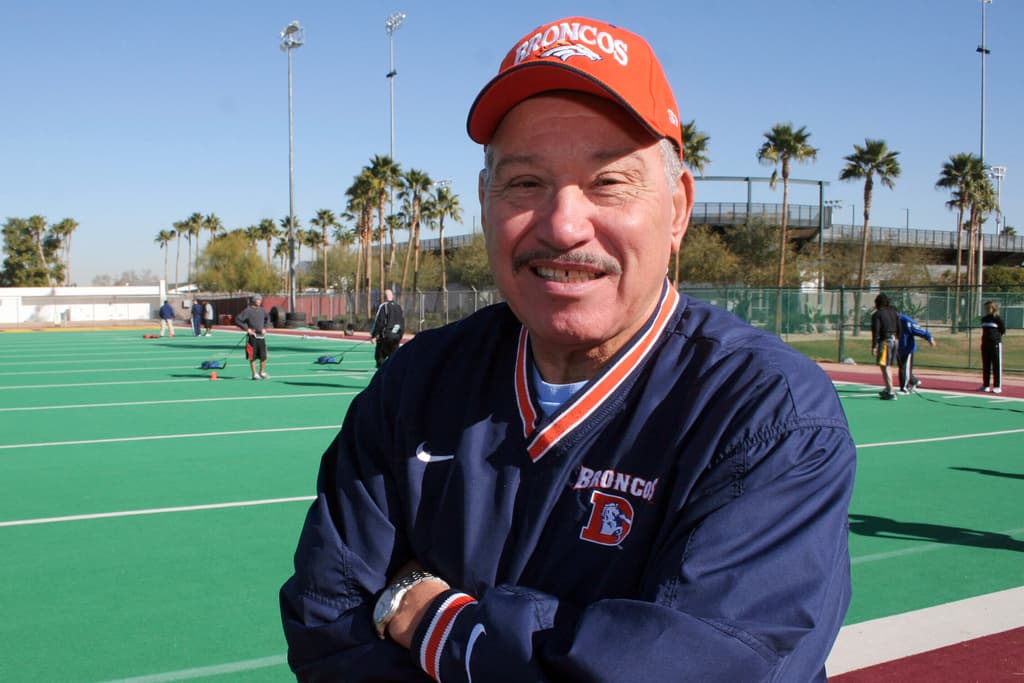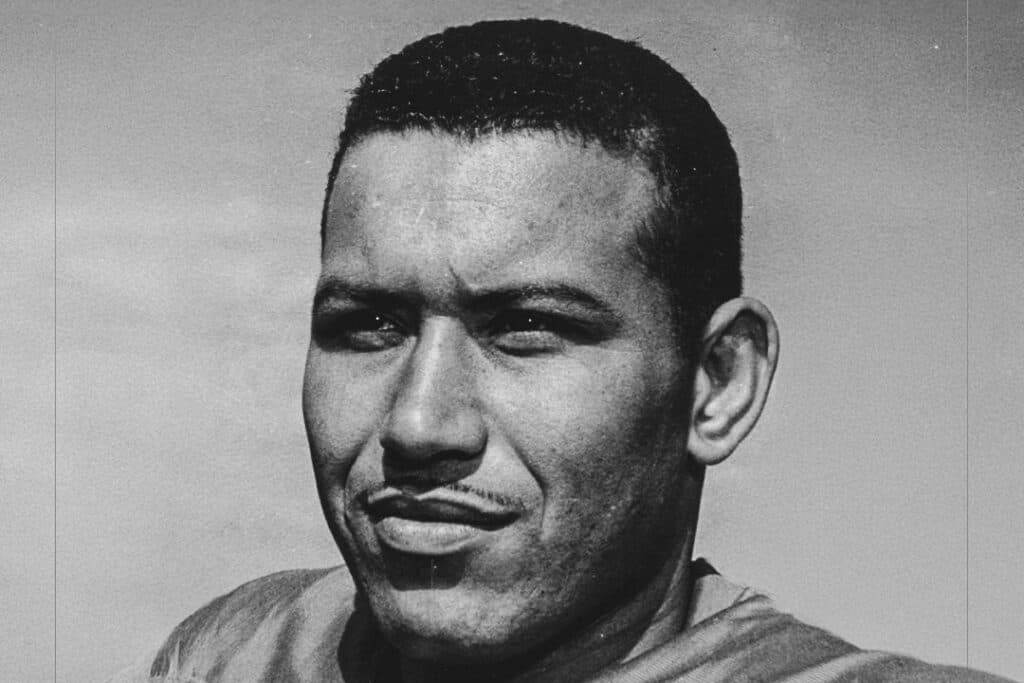
The Denver Broncos are remembering record-breaking wide receiver Lionel Taylor, who became the first player in professional football history to catch 100 passes in a season and who later broke barriers as one of the NFL’s first Black coordinators.
An original member of the 1960 Broncos team, Taylor, 89, died Aug. 6 at his home in Rio Rancho, New Mexico, after an extended illness. Plans for a public memorial service have not yet been announced.
During a recent interview with Colorado Matters host Chandra Thomas Whitfield, Jeff Legwold, an ESPN journalist who has covered the Broncos for more than 20 years, described Taylor as one of the most influential figures in franchise history.
“He's a lot more of a foundational player than I think even the most devout Bronco fans may have even thought about over the years,” Legwold said. “An original Bronco, he was one of the original members of the team's Ring of Fame, which honors their greatest players and coaches.”
Record-breaking wide receiver
Taylor’s career path had its share of challenges. As a defensive player with the Chicago Bears in 1959, he was cut after playing in eight games. The Broncos gave him a chance on offense while a part of the American Football League (AFL).
“It’s remarkable that the next season in the AFL, he caught 92 passes as a receiver, a position he was not even considered for in the NFL,” Legwold said.
Taylor went on to lead the AFL in receiving five times in his seven seasons with Denver. In 1961, he recorded 100 receptions, a milestone no player in the AFL or NFL had ever reached. His franchise record for single-season catches stood for 39 years until Rod Smith and Ed McCaffrey both surpassed it in 2000.

“Here was a defensive player for the Chicago Bears … and then he suddenly becomes the AFL's most productive receiver over the next seven years,” Legwold said. “I just think it's an amazing nugget of football history.”
Taylor still ranks in the top five in Broncos history in receptions (543), receiving yards (6,872), and in touchdown catches (44).
A pioneering coach
After retiring as a player in 1968 following two seasons with the Houston Oilers, Taylor launched what would be a long coaching career. He won two Super Bowls as wide receivers coach of the Pittsburgh Steelers, mentoring Hall of Famers Lynn Swann and John Stallworth.
“He was pretty clear that it was really nice to have two receivers good enough on those teams that they both would eventually be in the Hall of Fame,” Legwold said with a laugh. “But he was a fabulous coach.”
Taylor went on to coach for the Los Angeles Rams, Cleveland Browns, Oregon State and Texas Southern. In 1980, the Rams promoted him to offensive coordinator, making him what is believed to be the first Black coordinator in NFL history.
Former Pittsburgh Steelers player and Hall of Fame coach Tony Dungy often speaks on Taylor's impact on the game. “Tony has always said Lionel was a very important sort of coaching role model for him,” Legwold said. “That old saying, ‘You got to see it to be it.’ Tony said, I saw this man calling plays with a headset. And he said to himself, ‘I can do that too.’”
Taylor was also credited with embracing football’s expansion internationally, serving as head coach of the London Monarchs in the NFL’s early World League of American Football.
“Some people are put up in big letters on the marquee and others do their work in the quiet,” Legwold said. “And I think Lionel was very much a guy who spent much of his adult life in football and did so much for the game with very little sort of request for attention for doing it. He just did it.”
Broncos tribute
Taylor's grandson was present when the Broncos honored Taylor with a video tribute on the Jumbotron during their Aug. 16 preseason opener against Arizona at Empower Field at Mile High.
“We are saddened to learn of the passing of Broncos ROF wide receiver Lionel Taylor, an original Bronco and one of the most dominant players of his era,” the team shared in a statement via social media. “Taylor had a tremendous impact on the franchise during his seven seasons in Denver, 1960 to 1966. Our hearts go out to Taylor's family and friends.”
Legwold said he hopes Taylor’s legacy is remembered not just because he died, but because of his well-earned impact on the Broncos franchise and contributions to the sport overall.
“Because he passed away, maybe people will take a minute and just look at the career he had and say, ‘Oh wow,’” he said. “Maybe it will impress upon them what, again, an important player in the team's history that he was. Simply put, one of the most important players in the franchise’s history.”Colorado’s Lieutenant Governor Dianne Primavera echoed a similar sentiment, calling Taylor “ a true Broncos legend” in a statement. “As a lifelong Broncos fan, I’ve always admired his skill on the field and the way he helped shape the team’s history,” she said. “His legacy of excellence and leadership will never be forgotten.”









